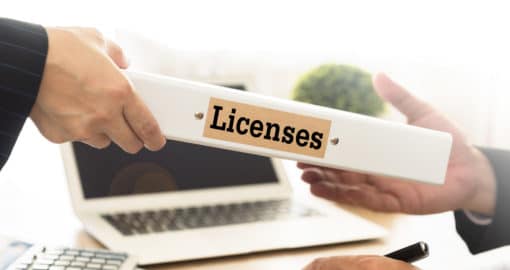Call Us Today (877) 943-0100
What Type Of Insurance Should A Contractor Have? Types of Insurance to Track for Your Contractor and Vendor Networks
COI Management | February 4, 2021
If you are searching “what type of insurance should a contractor have?” you should know that no matter who your contractor is, they should have standard insurance policies, and depending on their business, they should purchase additional types of coverage specific to their scope of work.
“What type of insurance should a contractor have?” is a very important question. Understanding the basics around which insurance policies should be required and what type of claims they cover may prove to be beneficial when working with your contractor and vendor networks. With the vast number of insurance policies that are offered to a business, it is a challenge to know exactly what you should require your contractor network to obtain to receive work from you. Knowing and understanding which insurance policies that you should require and why will help you when a contractor states they do not need a certain type of coverage based on their business.
Keep reading to learn the different types of insurance policies you should require and track if you have a contractor network.
What Type Of Insurance Should A Contractor Have?
Standard Insurance Policies
For all businesses, there are typical insurance policies that they should obtain to properly mitigate risk, not just for your company, but also for the contractors and their employees.
General Liability or Commercial General Liability (CGL) is the most critical policy that you should ask your contractor and vendor network to obtain and provide proof of coverage. The CGL policy is a basic insurance policy that provides coverage for bodily injury and property damage from an accident during everyday operations, from their business locations or onsite, products made by the contractor, completed work, and advertising/personal injury.
Example Scenario 1: Your contractor accidentally drops a flat-screen TV on a valuable piece of art and damages it, then the cost of the art would be covered under the CGL. The damage to the TV would be covered under bailee insurance, which is described below under additional policy types.
Example Scenario 2: A customer is hurt while a towing company is loading a motorcycle to be towed. This would be covered under bodily injury of the CGL. It is worth noting that bodily injury associated with a CGL policy does not provide coverage for employees.
There is also an option to extend coverage (for faulty work or products completed by the contractor) to your organization by requiring to be an Additional Insured on the contractor’s policy. This coverage can be added through an endorsement. It is recommended that you require to be listed as an additional insured and receive proof documentation for your records. Being listed as an additional insured allows you the ability to submit a claim directly to the contractor’s insurance company or carrier in the case of the contractor performing faulty work or products and causing damage.
Automobile Liability or Commercial Automobile Liability applies to contractors who will be traveling while performing business. Auto liability also covers accidents that involve bodily injury and property damage like the CGL policy. However, the coverage involves any accident occurrence while using a vehicle, or any work performed that involves a vehicle.
Example Scenario: Your contractor is lifting a large piece of equipment out of a truck and it falls out onto another vehicle. A commercial auto policy would cover any damage caused to the other car.
Automobile liability is a frequently overlooked policy. If a claim is denied through a CGL policy where a vehicle was involved, such as the above example, you may be able to take advantage of the auto liability, even if you are not an additional insured. Most auto policies will grant you additional insured status via your relationship with the contractor.
Workers’ Compensation covers any medical costs, lost wages, and medical bills associated with the injury or sickness of an employee while working. Not all businesses have employees or may meet exemption status according to law. In these cases, a workers’ compensation policy is not required.
Example Scenario: Your contractor’s employee accidentally hurts their back while pulling a dishwasher out of a cabinet. After visiting a doctor, they learn they will need surgery and will miss time at work. This results in medical bills and lost wages.
Most states require a general contractor to provide workers’ compensation coverage for an injured employee if a subcontractor does not have the coverage. As such, requiring and confirming your contractor has this policy is important. In some cases, an uninsured contractor who is injured on the job site can file a suit against the consumer’s homeowner policy for lost wages and medical care putting you and your company in the middle.
Umbrella Liability is intended to provide coverage in the event of catastrophic events and provides limits above and beyond the primary or standard insurance policies discussed earlier in this article. It can also provide some protection against claims that are not always covered by these insurance policies. Not all businesses have this coverage because they think their risk exposure is minimal to disastrous results. If your network is in a high-risk industry, you may want to consider this policy as a requirement for your contractor and vendor network.
Umbrella liability is also a more affordable option to increase limits to all the standard policies. As such, it is a good option for your contractor to supplement their limits.
Example Scenario: Your contractor has general liability coverage of $500,000 for each occurrence, however, you require $1,000,000. They also have an umbrella policy with $1,000,000 for each occurrence. This means they actually have $1,500,000 in coverage, which is significantly more than what you require.
Additional Types of Policies
Depending on the type of work your network specializes in, you may track additional policy types to reduce your risk exposure. The policies listed below are some common additional policy types that you may want to consider based on your industry and the type of work being performed.
Cargo Insurance falls under a category of coverage called Inland Marine Policies. This covers property, including third-party property, that is in transit. Inland Marine Policies are designed to fill a gap for the care, custody, and control exclusion found within your typical CGL policy. CGL policies simply do not cover any customer or third-party property.
Example Scenario: Your contractor’s truck is in an accident and it causes damage to some of the major appliances that are being transported within the vehicle. The damage to the major appliances would not be covered under the general liability or auto policy but under their cargo insurance.
Bailee Insurance is also a type of Inland Marine Policy. It is designed to provide coverage for third-party property that is in storage, repair, or service.
Example Scenario: Your contractor has temporarily stored your customer’s property from their home in a storage container to dry out the home out after a flood. During the night, the storage container was broken into and items were found missing.
Pollution Liability provides coverage in the event there is the contamination of the environment from a pollutant. Pollutants typically are not covered under your standard CGL, auto liability, and umbrella policies.
Example Scenario: A subcontractor does not properly extract roofing insulation that has asbestos and causes exposure to the homeowner and other subcontractors. This results in a class-action lawsuit.
Garagekeepers Coverage is like bailee coverage but is specific to auto services and dealers. It covers damage that can occur to a customer’s vehicle while in the servicer’s care for service and repair.
Example Scenario: A mechanic at your contractor’s service shop is moving the customer’s car out of the shop and accidentally backs into another vehicle. Garagekeepers would cover the damage to the customer’s car.
On-Hook Towing Insurance covers any damage that may occur while a vehicle is being towed or hauled. This includes collision, fire, theft, or vandalism.
Example Scenario: Your contractor is towing a customer’s vehicle and accidentally causes an accident with multiple vehicles. During the event, the customer’s car that is being towed is damaged. To cover the damage to the customer’s car, you would need on-hook coverage.
Professional Liability or Errors & Omissions (E&O) is designed for any business that provides a professional or quasi-professional service such as consultants, architects, designers, and engineers. It will cover any financial losses associated with missed deadlines, work errors, and oversights, breach of contract, etc.
Example Scenario: Kitchen cabinets were designed, ordered, and installed by your contractor. After the completion of the work, the customer claimed they were not designed as requested and insisted that they be reordered and reinstalled.
No matter what business your contractor or vendor has, it is important for them to have the standard general liability, automobile liability, and workers’ compensation policies. It is also important that you know the answer to the question “what type of insurance should a contractor have?” Depending on their industry and the type of work they perform will be dependent upon the additional types of policies that they should obtain to close any gaps in coverage that are not found in the standard policies.
If you are unsure what complimentary policy types you should require, or if there is sufficient risk to require, it is best to consult a risk manager or insurance agent. Next time you find a contractor questioning your insurance requirements, or you are evaluating your current compliance requirements for the network, you can confidently respond with the necessary standard and any supplementary policies.
About PlusOne Solutions
PlusOne Solutions has been an industry leader in the workforce compliance and risk management field by specializing in compliance programs that meet the complex challenges of geographically dispersed contractors, vendors, and employee networks. PlusOne Solutions protects companies from possible financial, legal, operational, and reputational risks associated with contractor and vendor relationships while creating safer work environments.
Contents are provided for information purposes only and should not be construed as legal advice. Users are reminded to seek legal counsel with respect to their obligations and use of PlusOne Solutions services.
To receive these updates directly in your email inbox, sign up for the newsletter.
5 Trade License Tracking Benefits For Your Contractor Network
Licensing is one of those critical areas that can take a back...
Read More9 Best Practices for Monitoring Licenses for Contractors and Vendor Networks
If you have ever found yourself in a position where a job...
Read MoreContractor Background Check Program: Best Practices You Should Be Following
Hiring an employee is not the same as engaging a contractor through...
Read More



